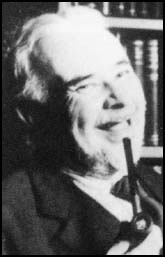CC.E.M.yC.E.M.rC.E.M.iC.E.M.lC.E.M. C.E.M.EC.E.M.dC.E.M.wC.E.M.iC.E.M.nC.E.M. C.E.M.MC.E.M.iC.E.M.tC.E.M.cC.E.M.hC.E.M.iC.E.M.nC.E.M.sC.E.M.oC.E.M.nC.E.M. C.E.M.�C.E.M.�C.E.M.�C.E.M.CC.E.M..C.E.M.EC.E.M..C.E.M.MC.E.M..C.E.M.�C.E.M.�C.E.M.�C.E.M. C.E.M.JC.E.M.oC.E.M.aC.E.M.dC.E.M. (Cyril Edwin Mitchinson Joad)

Author. He was a philosopher. author, teacher and one of the best-known British radio personalities of the 1940’s. He was born in Durham and was educated at Blundell’s School in Tiverton, Devonshire, and at Balliol College, Oxford. At University, he developed the pacifist and socialist views which led him to become a conscientious objector in the First World War and an opponent of the Second. After sixteen years in the Civil Service, he retired in 1930 to become the Head of the Department of Philosophy and Psychology at Birkbeck College, London University. Among his many books were “A Guide to Philosophy” and a study of Bernard Shaw which appeared in 1949, the year before G.B.S’s death. However, he is best remembered for his appearances on “The Brains Trust”, a B.B.C programme in which a panel of well-known people were invited to give unprepared answers to questions from the audience. He appeared on almost every edition of this from the very first programme, on New Year’s Day 1941, until April 1948, and was notorious for playing for time by prefacing almost every answer with the phrase, “It all depends what you mean by ….” The producer claimed that he had chosen Julian Huxley to be on the panel for his brain, Commander Campbell for his heart, and Joad for his tongue. In 1948, however, Joad pleaded guilty at Tower Bridge Magistrates Court to fare evasion on the railways, and was fined two pounds plus costs of 25 guineas. It emerged that, so far from being an isolated incident, Joad had an obsession about trying to defraud the railways, and he used to carry pocketfuls of penny tickets, lie about which station he had boarded the train, and even scramble over hedges and fields to avoid ticket collectors. He was replaced on the next edition of the programme and never appeared on it again. Possibly as a result of this, in his last years he changed from atheism to religion, as detailed in his final book, “Recovery of Belief” (1952). (bio by: Iain MacFarlaine)
Born
- August, 12, 1891
Died
- April, 04, 1953
Cemetery
- St John-at-Hampstead Churchyard
- England

